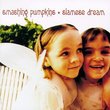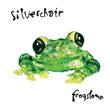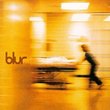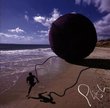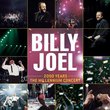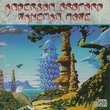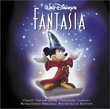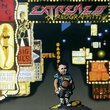| All Artists: Spock's Beard Title: V Members Wishing: 4 Total Copies: 0 Label: Metal Blade Original Release Date: 8/22/2000 Release Date: 8/22/2000 Genres: Pop, Rock Styles: Progressive, Progressive Rock Number of Discs: 1 SwapaCD Credits: 1 UPC: 039841433524 |
Search - Spock's Beard :: V
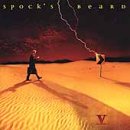 | Spock's Beard V Genres: Pop, Rock
|
Larger Image |
CD DetailsSimilar CDs
Similarly Requested CDs
|
CD ReviewsSolid musicianship, but haven't I heard this before? Joey Joe Joe Jr. Shabadoo | Boston, MA USA | 02/25/2008 (3 out of 5 stars) "These guys are obviously talented. It has everything a fan of progressive rock is looking for; tons of different song parts, time changes and key changes galore, and exceptional musicianship from everyone involved. Still, I can't help but listen to this and sit there thinking, "OK, that sounded just like Yes...ooh that baseline sounds like Rush...this section sounds like Genesis..." It's just not original. Not even the sound. The rickenbacker bass sound, the mellotron, even the guitar production...after a certain point is goes beyond just paying homage to the greats and it becomes more a form of mimicry. The introduction to "At the End of the Day" could have come straight out of a Tales-era Yes recording or something off of Farewell to Kings. And I just can't get past this aspect of these "modern" prog bands. It doesn't seem like the genre has come very far in these 30+ years. In fact much of this album seems like not just a rehash of the past, but also a slightly more pop-flavored rehash. This doesn't even get into the fact that the lead singer is ... eh. The vocals/lyrics are just bland, totally nondescript and this is made even more evident by the incredible band backing him (To be fair, the singer, Neal Morse, wrote all of the music & also plays some acoustic guitar and keyboards, and is excellent in these regards). Overall - in spite of all of these drawbacks, there are some excellent moments on this disc. The musicianship is so stellar that it shines through in spite of its flaws. The Great Nothing is pretty amazing in sections, as is the previously mentioned At the End of the Day. Well arranged, well played, never overindulgent or unnecessary in its scoring. I just wish there was a bit more of their own sound in here, rather than the echoes of their influences which really are everywhere and seem rather disorganized. If you are a prog guy like me who has been stuck in 70s prog for a while, you may want to sample it, but don't expect anything new or earth shattering. If you've heard Yes, Genesis, Rush, ELP, Tull, etc. then you have heard this before. For me, this is the last Spock's Beard disc I will buy." Builds upon the late 1970s stadium rock style Jeffrey J.Park | Massachusetts, USA | 03/20/2008 (3 out of 5 stars) "By the late 1970s, the 1960s counterculture had fizzled out, the classic English symphonic progressive style had all but completely dissolved and groups that fused aspects of the English progressive style with hard rock were selling millions of albums. As a style, the stadium rock groups prized virtuosity, yet avoided the more astringent aspects of the English progressive groups (a relevant example that comes to mind is Kansas). It seems to me that the Spock's Beard sound largely builds upon the stadium rock style; a sound that is nicely illustrated on this 2000 release.
The lineup on V includes (former) bandleader Neal Morse (lead vocals, piano, synthesizers and acoustic guitar), Ryo Okumoto (Hammond organ and mellotron), Dave Meros (electric bass, acoustic bass, vocals and French horn), Alan Morse (electric guitar, vocals, cello and sampler) and Nick D'Virgilio (drums, percussion and vocals). These guys are generally good musicians. I especially like the bass playing of Dave Meros, which is very high in the mix. Come to think of it, his general approach is highly reminiscent of Dave Hope (from Kansas). The electric guitar player generally favors a hard-edged and distorted tone, although he is capable of playing with a "clean" tone as well. Ryo is an interesting character and apparently got his start with Kitaro in the late 1970s/early 1980s after which he moved onto session work with some of the biggest names in the music industry. On this album he provides proggy "color" with the use of the Hammond organ and the mellotron. Other aspects of the music that I liked were splashes of acoustic instruments here and there, including the French horn and cello. The six tracks on this album range in length from 4:12 to the lengthy Great Nothing suite, which clocks in at 27:18. Stylistically, the music on this album is largely indebted to the American stadium rock style. Like the stadium rock bands, the group prizes virtuosity and incorporates other mannerisms of the classic progressive style: sharply pronounced electric-acoustic contrasts, guitar and keyboard solos over an ostinato (played on the bass alone or in unison with the guitar/keyboard), and lengthy compositions. Other similarities can be drawn to the stadium rock bands, including the hard rock element, which is provided by the hard-edged guitar tone colors of Alan Morse. Moreover, the music on V largely avoids abrasive textures and the "darkness" that characterized a lot of classic progressive rock. Indeed, equal emphasis is placed on rich vocal harmonies, pop melodies, pop song structure and overall "accessibility" - Goodbye to Yesterday is a wonderful example of this. The production quality on this album is excellent, which was yet another feature of the stadium rock bands. All in all, while the music of Spock's Beard is certainly not bad at all, it just never did click with me. I can however, appreciate the technique of the players, the "tunefulness" of their songs and the high production values. Along those lines, I think that of the albums released pre-Snow (2002), V may well be their finest, although Beware of Darkness (1996) and The Kindness of Strangers (1997) would both offer something of interest to folks new to the group. Other related albums worth exploring include the debut by Transatlantic (Neal plays on this album) and the first solo album by Neal, which places even greater emphasis on pop song structure." |

 Track Listings (6) - Disc #1
Track Listings (6) - Disc #1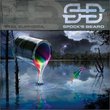
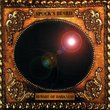

![Sly & the Family Stone - Greatest Hits [Epic]](https://nationalbookswap.com/cd//m/63/8263/18263.jpg)
